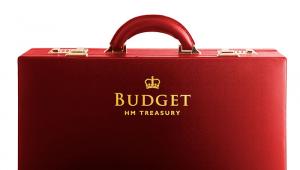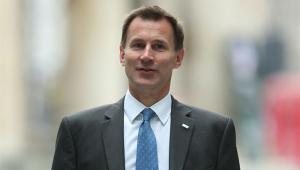There were three tests for today’s Budget. A political one, a reality one and an economic one.
The political test for this Budget was in a sense pretty low. Could the chancellor find a set of policies that kept his backbenchers happy and delivered on the promises made in the Conservative manifesto and by the prime minister in recent times.
Probably the chancellor passed this. Of course, he was thrown an enormous lifeline by the dramatically revised OBR forecasts for where the deficit is heading. This meant in effect that it ‘paid for’ the promises on NHS funding made recently by the PM and so tax rises – that in the present climate would have caused big problems for the governing party – were avoided. Hammond decided instead to give some short run tax cuts by bringing forward increases to the tax thresholds by a year. It’s hard to see an economic rationale for choosing this as the place to put any spare money – but politics was key.
A few upward tax tweaks here and there, like the promised digital tax and some increases in the taxation of private sector self-employment, gave him a bit more money. More important to his room for manoeuvre was his decision not to keep to his policy of moving towards a balanced budget, but to keep to a deficit of around £20bn. He has used this fiscal room to try to see off some of the most politically hot issues, with a short-term cut to business rates for smaller businesses and a package to try to save the high street; plug a small part of the social care gap again in a one-off way; and put some pretty serious funding into trying, once and for all, to see off the IDS Tories who wanted universal credit to continue but did not like the losers implied; and he found money for that old chestnut that is the bugbear of MP’s post bags, fixing pot holes.
But the claim that austerity is now over seems pretty far-fetched. He has got basic departmental spending (so called RDEL) going up a bit over the next five years but it appears that if you take the NHS and the ‘protected areas’ (like ODA spend and defence) out there is precious little growth left for the rest. Certainly patients, parents, prison governors are unlikely to notice much difference and councils and social care are still left hanging. The reality test then was far from passed.
The economic test should be whether this Budget did anything about Britain’s chronic levels of growth and productivity since 2010. Here he also did less well.
The growth forecasts continue to be poor, with the OBR saying growth over the next few years will never go above 1.6% barely an increase from the forecasts back in March and still woeful compared to the growth rates we used to enjoy. GDP per capita never goes over 1% until 2023. As the IFS pointed out recently: “Sadly the economy appears to have slowed pretty much in line with those much maligned post-referendum forecasts. “
The Budget took some steps with the raising of investment allowances – at least for a period; some support for infrastructure and housing; and some moves to rescue the apprenticeship area. But it was not that much and clearly did not cause the OBR to raise their growth forecasts to any significant extent. Despite the deficit coming down, our overall debt remains very high, at least partly a consequence of the low growth rates being achieved.
Bringing these different tests together, Hammond tried to play a game talking about the difference a decent Brexit deal would bring in terms of his ability to finance some extra public spending from his so-called fiscal buffer. He also explained that despite his general commitment to only having one Budget a year, if Brexit went wrong he would haven another one in the spring.
Although he was not clear, it may be in his mind that if we have a no deal Brexit we will need to move to a low-tax economy to give our firms a chance to compete – and with less tax revenue there would be less money to help repair the battered public sector. Contrary to the very minority views of ultra-Brexiters, he clearly does not see Brexit as a good thing and views a no deal as something to be avoided. In that he is certainly right according to most economists. Whether his conditionality around rescuing public services puts enough pressure on Tory waverers to support the PM on Brexit, presumably his aim, remains to be seen.




















